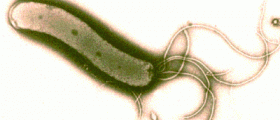
Bacteria are tiny, living organisms. They are amongst the oldest living organisms, and are usually so minute that they can only be seen through a microscope. Some bacteria are harmful to our health, while others can in fact provide vital benefits for humans and other living beings. There are slight differences between the types of bacteria. For example, aerobic bacteria require oxygen for survival, while those that do not are known as anaerobic.
Some common types of bacteria
Staphylococcus Aureus are widely found in the skin and other parts of the human body. The US Food and Drug Administration estimates that this type of bacteria are present in about fifty per cent of healthy humans.
Autotrophic and heterotrophic bacteria obtain the carbon they need from carbon dioxide. This types of bacteria are also known as autotrophs. Listeria monocytogenes are a type of bacteria that can cause serious infections. The presence of this type of bacteria can lead to afflictions such as listeriosis, meningitis, encephalitis and intrauterine infections.
Many types of bacteria can be found on the human body. One should remember, however, that bacteria are not always negative. For example, bacteria are what makes yogurt taste good. About 5-10,000 types of bacteria live in the human body. Even just after birth, a newborn baby is quickly colonized by Lactobacilli, which help to convert milk protein to lactic acid. Thus, bacteria of certain types can be beneficial to us, particularly this Lactobacilli strain, which remain permanently in our bodies.
Food safety
Making our food safe from harmful bacteria is absolutely vital when it comes to the maintenance of bodily health. One should always take care to keep appliances and utensils as clean as possible, particularly if these items are in contact with foods such as raw meat, poultry and seafood. You can also sanitize these items with one teaspoon of liquid chlorine bleach (per quart of water).
When cooking these types of food, make sure that you cook them thoroughly and allow no cold or uncooked spots to remain. This is particularly true if you are cooking with a microwave oven. Remember to cover, stir and rotate the food whilst cooking.
Food safety is vital, and should not be taken lightly. Infections caused by bacteria in food can be mild or severe, but outbreaks of illness can spread rapidly. Most food-related businesses will not survive in the aftermath of a food poisoning outbreak.

















Your thoughts on this
Loading...